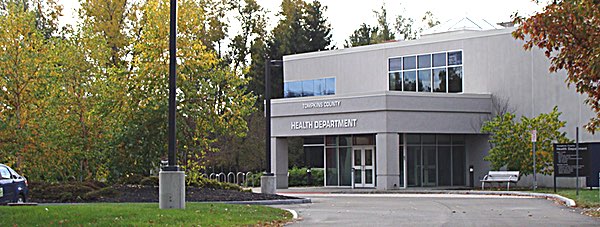- By Samantha Hillson and Governor's Office
- News
 Print
Print 
On Sunday, February 9, the results for the second Cornell University student tested for the 2019 Novel Coronavirus (2019-nCoV) were negative. The individual is no longer a person under investigation (PUI) and was released from isolation.
The Tompkins County Health Department (TCHD) continues to work closely with local medical providers including Cornell Health, Ithaca College Health Center and Cayuga Medical Center, to protect the health and well-being of our community. Guidance from the NYS Department of Health (NYSDOH) and the U.S. Centers for Disease Control and Prevention (CDC) is informing our process for prevention and response.
The 2019 novel coronavirus may cause symptoms including:
- Cough
- Fever
- Trouble breathing
- Pneumonia
The coronavirus is spread from someone who is sick through the air by coughing or sneezing, close personal contact, or touching surfaces where the virus is present. If you returned from travel to China in the past 14 days and feel sick with fever, cough or trouble breathing, you should:
Seek medical care. Before you go to a doctor’s office or emergency room, call ahead and
tell them about your recent travel and your symptoms.
Stay home and avoid contact with others until you are well.
Cover your mouth and nose with a tissue or your sleeve when coughing or sneezing.
Wash hands often with soap and water for at least 20 seconds. Use an alcohol-based hand sanitizer if soap and water are not available.
On Sunday, February 2, CDC and the U.S. Customs and Border Protection implemented additional health screenings for travelers who are entering the U.S. from China. TCHD will be notified of the return of any travelers from China to Tompkins County. Any travelers from China will be quarantined and monitored by TCHD nurses for 14 days post departure from China. Quarantine means that even those who do not have symptoms are required to stay home away from others during the defined period to monitor their health status.
The best way to prevent infection is to avoid being exposed to this virus. However, as a reminder, TCHD always recommends everyday actions to help prevent the spread of viruses. Follow these steps to protect yourself:
- Get the flu vaccination if you have not done so already
- Wash hands with soap and water for at least 20 seconds
- If soap and water are not available, use an alcohol-based hand sanitizer
- Avoid touching eyes, nose and mouth with unwashed hands
- Avoid close contact with people who are sick
- Stay home if you are sick
- Cover your cough or sneeze with a tissue, then throw the tissue in the trash
- Regularly clean and disinfect surfaces and objects
As of Monday, samples from 23 New Yorkers have been sent to the Centers for Disease Control and Prevention for testing. Of those, 22 have come back negative. One sample from New York City and no samples from New York State outside of New York City are pending. There are still no confirmed cases of novel coronavirus in New York State.
There has been a total of 89,597 lab-confirmed cases reported in New York State this season, with three flu-associated pediatric deaths. Influenza activity data is available on the New York State Flu Tracker. The Flu Tracker is a dashboard on the New York State Health Connector that provides timely information about local, regional and statewide influenza activity.
On January 3, the State Department of Health issued a statewide health advisory alerting healthcare providers to the dramatic increase in flu activity across New York State.
Department of Health Commissioner Dr. Howard Zucker said, "While New York does not have a confirmed case of coronavirus, the flu is here and can be very serious. Taking simple preventive steps such as washing hands often, covering a cough or sneeze with your arm and staying home when experiencing flu-like symptoms will help prevent the spread of the flu. These same actions will help protect New Yorkers against the novel coronavirus."
A hotline is available for New Yorkers to call for information about the novel coronavirus: 1-888-364-3065.
v16i7


